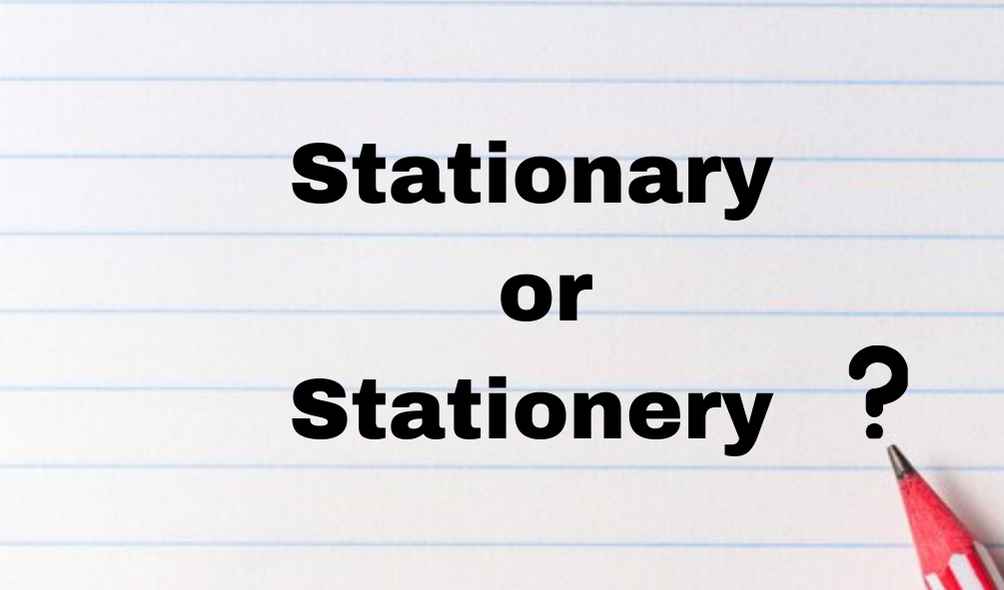Stationary or Stationery English Meaning

Sometimes, words that sound the same can mean different things. Like “stationary” and “stationery.” Even though they sound alike, they’re not the same. Let’s learn what each one means, so you won’t mix them up.
What is Stationary?
“Stationary” means something isn’t moving. It can be a thing, a person, or an idea. Here are some examples:
- The train stopped and didn’t move.
- The teacher told us to stay in one place for the science experiment.
- The company didn’t make more or less money for three months.
In all these examples, “stationary” means not moving or changing.
What is Stationery?
“Stationery” is stuff you use for writing, like paper, envelopes, and pens. It’s what you use to write letters or do office work. Here are some examples:
- She bought fancy paper for her business letters.
- The office got new paper with the company logo on it.
- He keeps his pens and paper organized in a drawer.
Read also about: I Would Love To or Too
In these examples, “stationery” is about writing materials.
Grammar and Dictionary Examples:
Let’s look at some sentences and what the grammar books and dictionaries say:
Grammar Example:
- Wrong: The bike was at a stationery spot.
- Right: The bike was in one place and not moving.
Dictionary Example:
- Stationary (adjective): Not moving.
- Stationery (noun): Writing materials like paper and pens.
Remembering the Difference: To remember which is which, think about:
- Stationary means things that don’t move.
- Stationery means stuff you write with.
Which is correct Argument or Arguement
Conclusion:
Knowing the difference between “stationary” and “stationery” helps you talk and write better. Whether you’re talking about something still or picking out paper for a letter, using the right word makes a difference. So, remember: stationary means still, and stationery means writing stuff. Keep this guide handy, so you won’t mix them up again!